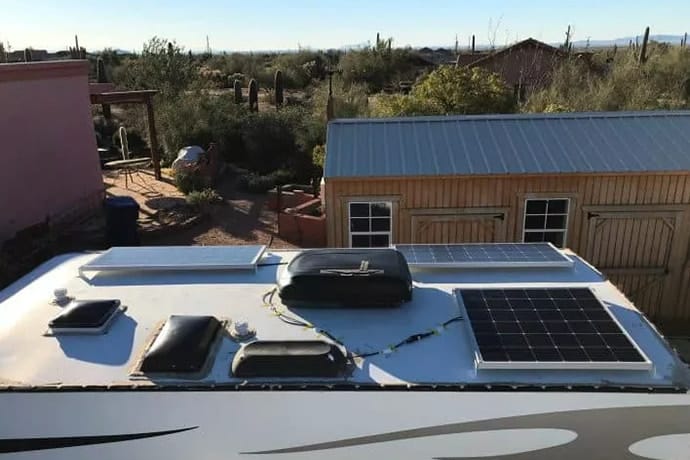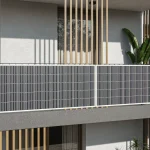As the world continues to shift towards renewable energy, the efficiency of solar power systems has become increasingly important. Solar energy offers a sustainable and cost-effective solution for reducing reliance on fossil fuels, but like any investment, it requires careful management to maximize returns. Optimizing the performance of your solar system is essential for generating more electricity, reducing energy costs, and ensuring a faster return on investment. In this article, we’ll explore the benefits of solar optimization and provide practical tips to help you enhance your solar system’s efficiency.
Does Optimization of Solar Efficiency Make Sense?
The question of whether optimizing solar efficiency makes sense is straightforward—yes, it absolutely does. When you invest in solar panels, you are making a significant financial commitment with the expectation of long-term savings on energy costs. By optimizing the performance of your solar system, you can ensure that you’re getting the most out of this investment. Efficient solar panels produce more electricity, which can reduce your dependency on the grid and lower your monthly utility bills. Moreover, in areas where solar energy incentives or feed-in tariffs are available, higher efficiency can translate into more substantial financial returns.
In addition to financial benefits, optimizing your solar system also contributes to environmental sustainability. The more efficiently your system operates, the less energy you need from non-renewable sources, which helps reduce your carbon footprint. Therefore, optimizing solar efficiency not only makes sense from an economic standpoint but also aligns with the broader goal of promoting a sustainable future.
Tips on Optimizing Solar Performance
To maximize the output of your solar system, consider implementing the following strategies:
1. Clean Your Panels Regularly
Solar panels are exposed to the elements, which means they can accumulate dirt, dust, bird droppings, and other debris over time. These obstructions can significantly reduce the amount of sunlight that reaches the solar cells, leading to lower energy production. Regular cleaning is one of the simplest and most effective ways to maintain optimal efficiency. The frequency of cleaning depends on your location and environmental factors. For instance, if you live in a dry, dusty area, you may need to clean your panels more frequently. A general guideline is to clean your panels at least twice a year, but more frequent cleanings can be beneficial in certain environments.
When cleaning your panels, use water and a soft brush or sponge to avoid scratching the surface. It’s also important to perform the cleaning in the early morning or late evening when the panels are cooler to prevent cracking from rapid temperature changes.
2. Avoid Shading
Shading is one of the most significant factors that can reduce the efficiency of your solar panels. Even a small amount of shading on a portion of a solar panel can lead to a disproportionate drop in the system’s overall performance. This is because solar panels are usually connected in series, meaning that the output of the entire string is limited by the lowest-performing panel. Therefore, it’s crucial to ensure that your panels are installed in a location where they receive maximum sunlight throughout the day.

To minimize shading, trim any overhanging branches and position panels away from structures that might cast shadows. If complete avoidance of shading is not possible, consider using microinverters or power optimizers. These devices allow each panel to operate independently, reducing the impact of shading on the system’s overall performance.
3. Reflect Sunlight
An often overlooked method of increasing solar efficiency is the use of reflective surfaces around the panels. Reflectors can be used to direct additional sunlight onto the panels, particularly during the morning and evening when the sun is at a lower angle. This technique can boost energy production, especially in installations where space is limited and adding more panels is not feasible. However, care must be taken to avoid overheating the panels, as excessive heat can reduce their efficiency.
4. Monitor and Maintain the System
Regular monitoring and maintenance are critical to ensuring your solar system continues to operate at peak efficiency. Many modern solar systems come equipped with monitoring tools that allow you to track the performance of each panel and identify any issues quickly. By keeping an eye on system performance, you can detect problems such as inverter failures or panel degradation before they significantly impact energy production.
Maintenance tasks include checking electrical connections, inspecting for physical damage, and ensuring that all components, including inverters and batteries, are functioning correctly. Scheduled maintenance should be performed annually by a qualified technician to ensure the system remains in optimal condition.
Conclusion
Optimizing the efficiency of your solar power system is essential for maximizing energy production and ensuring a good return on your investment. Regular cleaning, avoiding shading, utilizing reflective surfaces, and performing routine maintenance are all effective strategies for enhancing your system’s performance. By implementing these tips, you can ensure that your solar panels generate the maximum possible energy, leading to greater savings on your energy bills and a reduced environmental impact. Embrace these strategies and enjoy the benefits of a highly efficient solar power system that supports both your financial goals and the planet’s well-being.







